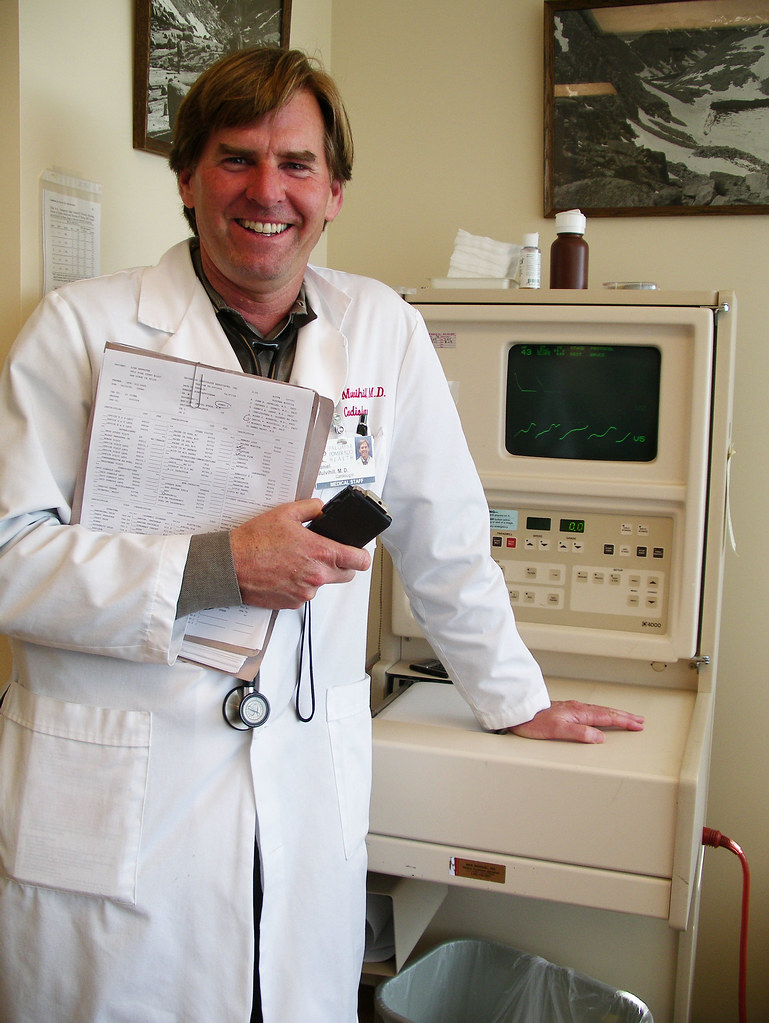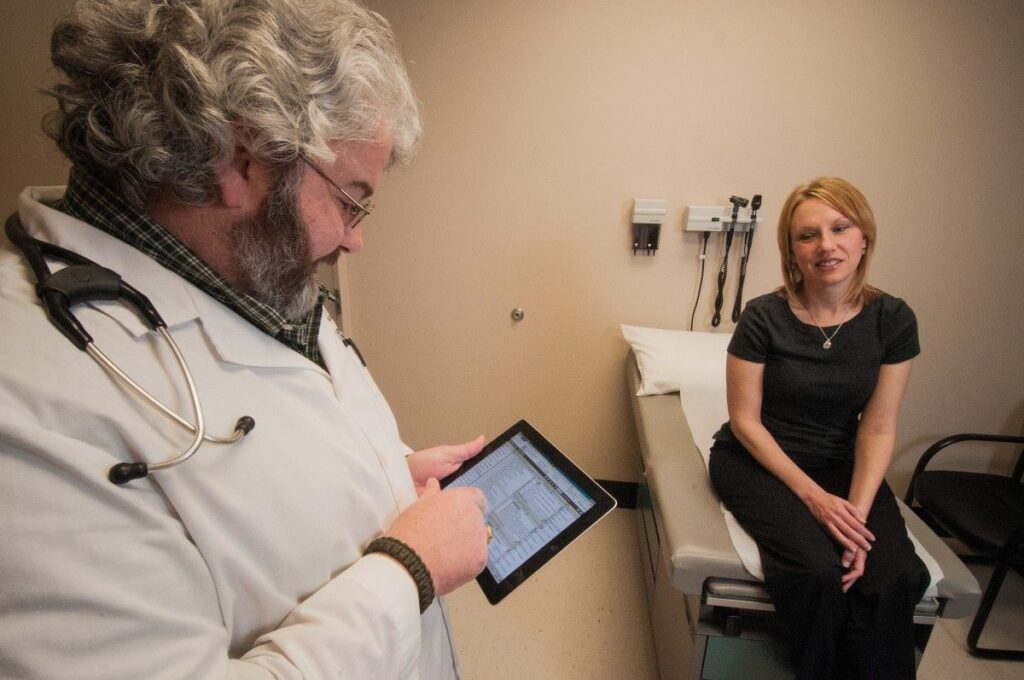
Navigating the healthcare system can often feel like trekking through a dense, unfamiliar forest, especially when you’re on the hunt for a new doctor or specialist. The sheer volume of choices, the jargon, and the urgent need for a good fit can quickly turn a crucial task into an overwhelming ordeal. Yet, finding the right medical partner is not just about addressing immediate symptoms; it’s about building a cornerstone for your long-term health and well-being. It’s an investment in yourself that pays dividends.
This isn’t about simply picking a name from a list; it’s about finding a healthcare ally who understands your unique needs, communicates effectively, and genuinely partners with you on your health journey. Whether you’re dealing with routine check-ups, managing chronic conditions, or seeking specialized care, the quality of your provider can profoundly impact your health outcomes and your peace of mind. Our goal here is to cut through the confusion and provide you with actionable steps and insights to confidently find a better doctor or specialist, potentially in less than a week.
We’ll equip you with practical tips, smart strategies, and essential questions to ask, empowering you to make informed decisions that resonate with your personal health philosophy. You deserve a healthcare provider who listens, cares, and is committed to your healing. Let’s dive into the simple secrets that will guide you to that ideal match, transforming your search from a daunting task into an empowering exploration of your best health.
1. **Why You Need a Primary Care Physician**While the healthcare landscape boasts a myriad of specialists, from cardiologists to oncologists, there’s one type of doctor that every individual should prioritize: a primary care physician (PCP). These invaluable professionals serve as your consistent first point of contact for nearly all your general health needs and concerns. They are the quarterbacks of your health team, monitoring your overall wellness and guiding you through the often-complex medical system.
As internal medicine physician Dr. James Wantuck, chief medical officer and cofounder of the telehealth platform PlushCare, explains, using urgent care or the emergency room for primary care needs doesn’t allow you to build a trusted, long-term relationship with one provider. This continuity of care is crucial. Over time, your PCP becomes intimately familiar with your health history, serving as a ‘detective’ to uncover what’s wrong when something feels off, and monitoring subtle changes or trends that others might miss.
Primary care providers offer a comprehensive range of general and preventive services. These include vital annual physicals and checkups, essential blood tests, crucial health screenings, and routine vaccinations. Beyond prevention, they also adeptly manage common and minor health issues such as colds, the flu, ear infections, rashes, and insect bites.
Furthermore, PCPs are instrumental in the ongoing management of chronic conditions, including prevalent issues like allergies, asthma, diabetes, heart disease, high blood pressure, and various skin conditions. For women, many PCPs also provide essential women’s health care services, such as birth control, pelvic exams, and Pap smears. And, perhaps most importantly, if you ever face a complex or specific medical condition requiring particular expertise, your primary care physician is perfectly positioned to provide a targeted referral to a medical specialist, ensuring you get the right care at the right time.
Read more about: Unlocking Peak Performance: The 13 Essential Supplements Recommended by Top Sports Doctors for Athletes

2. **Understanding the Landscape of Primary Care Providers**The term ‘primary care physician’ is actually an umbrella that covers several distinct types of doctors and providers, each with their own unique focus and training. Knowing these distinctions can help you pinpoint the best fit for your specific life stage and health needs. From family-focused practitioners to those specializing in adult or pediatric care, understanding their roles is a key step in your search.
Firstly, there’s the family medicine physician. As Dr. Ada Stewart, board chair of the American Academy of Family Physicians, highlights, these doctors care for the ‘whole person through all stages of life, from birth to older age.’ They adopt a holistic view, focusing on you as a complete individual rather than just a specific health problem. Their rigorous training typically includes a four-year undergraduate degree, a medical degree, and a three-year residency program, preparing them for a broad scope of practice across all ages.
Next are internal medicine physicians, often called internists. These specialists dedicate their expertise to the care of adults aged 18 and over, encompassing the diagnosis, treatment, and prevention of a wide array of adult health problems. Like family medicine doctors, they undergo a four-year undergraduate degree, a medical degree, and a three-year residency, but with a concentrated focus on adult medicine. If you’re an adult seeking a dedicated physician for your specific age group, an internist might be an excellent choice.
For the younger population, pediatricians are the go-to primary care providers. They specialize in caring for children and young adults, often providing continuity of care through age 21, though some may suggest transitioning to an adult provider around 18. Their path involves a medical degree followed by a three-year residency program specifically tailored to the unique health needs of children. While OB-GYNs primarily specialize in reproductive health and can serve as PCPs for some young, healthy women, it’s important to note they aren’t typically equipped to handle general health issues like the flu or strep throat, which fall within the purview of family or internal medicine.
Lastly, it’s worth recognizing that a nurse practitioner (NP) or a physician assistant (PA) can also serve as a primary care provider. Although they are not medical doctors, they collaborate closely with physicians and will refer to their supervising doctor when necessary, as explained by Dr. Susan Besser, a family medicine provider. In many states, NPs have the same prescriptive authority as doctors, empowering them to prescribe medications, while some states may have specific regulations on certain prescriptions. When considering a PCP, you might also notice degrees like MD (doctor of medicine) or DO (doctor of osteopathic medicine). Both receive similar training, but DOs uniquely study 300 to 500 hours of osteopathic manipulation, which is a hands-on approach to treating the musculoskeletal system, offering a slightly different philosophical approach to care.
Read more about: 11 Essential Strategies for Small Businesses to Fortify Defenses Against Major Cyberattacks

3. **Tapping into Your Network: Friends, Family, and Referrals**One of the most natural and often effective starting points for finding a new primary care provider is by simply asking those closest to you: your friends and family. Personal referrals come with a built-in level of trust, as these individuals know you well and can offer insights into a doctor’s personality and approach from their own direct experiences. It’s like getting a pre-vetted recommendation from someone who has your best interests at heart.
However, a crucial point to remember is that a stamp of approval from a friend or family member, while helpful, doesn’t automatically guarantee that a doctor will be the perfect match for you. Your health issues, personality, and specific needs will likely differ from theirs. What works wonderfully for one person might not align perfectly with another, even within the same social circle. This is where a bit of critical thinking comes into play.
Dr. Ruth Brocato, a family medicine provider, emphasizes that the ‘personality mix of the doctor and patient together is the real key to a successful relationship.’ So, when a friend or family member raves about their doctor, don’t just take the name and run. Instead, delve deeper. Ask them *what* they specifically like about that provider. Is it their communication style, their willingness to listen, their diagnostic approach, or the efficiency of their office?
By asking these probing questions, you can gather more nuanced information that will help you determine if there’s a potential match for *your* specific preferences and healthcare philosophy. This approach transforms a simple recommendation into a more thoughtful assessment, allowing you to leverage your network effectively while still prioritizing your individual needs in the search for your ideal primary care partner.

4. **Decoding Online Reviews and Professional Directories**In our digital age, online reviews have become an inescapable part of nearly every decision, and choosing a primary care provider is no exception. They can serve as a valuable initial filter, offering a snapshot of public perception and patient experiences. It’s certainly helpful if you encounter mostly positive reviews for a doctor, as this often indicates a consistent level of care and a provider who is attentive to their public image and patient satisfaction.
However, it’s essential to approach online reviews with a degree of discernment. They should be considered a starting point rather than the final word, as all reviews are inherently anecdotal. A single negative review, or even a cluster, might not always be accurate or reflective of the broader patient experience; it could stem from a unique situation or a personal disagreement. Similarly, overwhelmingly positive reviews should be viewed as an indicator, not a guarantee.
Beyond general review sites, utilizing reputable professional directories is a much more robust strategy. For instance, the U.S. News’s doctor directory is specifically designed to help patients choose a doctor, leveraging patient experience ratings and provider expertise. These platforms often provide more structured and verified information, offering a clearer picture than a random collection of comments.
When you use these directories, look for patterns in the feedback. Do multiple patients mention the doctor’s excellent listening skills, or perhaps a recurring issue with long wait times? While individual comments are subjective, consistent themes can provide valuable insights. Remember, the goal is to gather preliminary information that informs your deeper investigation, not to let a few clicks dictate your entire decision.

5. **Deep Dive into Doctor’s Credentials and Specialties**Once you have a shortlist of potential primary care providers, it’s time to move beyond anecdotal evidence and delve into their verifiable professional credentials. This step is crucial for ensuring you’re entrusting your health to a qualified and competent individual. Fortunately, this information is usually straightforward to find, often prominently displayed on the practice’s website or accessible through dedicated online resources.
The first critical check is confirming the doctor’s licensing status. Is the doctor licensed to practice in your state? This fundamental requirement ensures they meet the legal and professional standards necessary to provide care. You can easily verify where a doctor is licensed to practice, along with their educational background, by visiting the Federation of State Medical Boards website, which serves as a central repository for this vital information.
Next, understand the doctor’s specific specialty. As discussed earlier, knowing if they specialize in family medicine or internal medicine is key. A family medicine physician cares for all ages, while an internal medicine doctor focuses on adults 18 and over. This distinction is paramount, especially if you have a family or if you’re an adult seeking a doctor who specializes in adult-specific health challenges.
Perhaps the most significant credential beyond basic licensing is board certification. This refers to a special examination that doctors can study for and pass *after* completing medical school and residency. While not legally required to practice medicine, board certification adds an extra, rigorous layer of testing of a doctor’s knowledge and expertise in their chosen field. Furthermore, board certification often necessitates ongoing courses that refresh the doctor’s knowledge every few years, indicating a commitment to continuous learning and staying current with medical advancements. Finally, if it’s a personal preference or important for your comfort, you might also consider whether the doctor is male or female, as this can play a role in how comfortable you feel discussing sensitive health topics.

6. **Navigating Insurance Coverage and Costs**Understanding how your health insurance interacts with your choice of primary care provider is not just a good idea; it’s an essential step to manage healthcare costs effectively. Seeing a doctor who is covered by your private health insurance plan, Medicare, or Medicaid can significantly whittle down your out-of-pocket expenses, making quality care more accessible and affordable.
Most health insurance plans require you to pay a copay for each appointment, with the plan covering the remaining cost. To identify which local primary care providers accept your specific insurance, many insurance plans offer convenient online tools. These tools allow you to search for in-network providers in your area, streamlining the selection process and helping you avoid unexpected bills.
If you prefer a more direct approach, you can always contact your insurance company directly, either by phone or through their online portal, to get a definitive list of participating providers. This ensures you have the most up-to-date information regarding coverage. However, what if you find a primary care provider you really like, but their office doesn’t accept your current insurance plan? Don’t despair immediately.
In such cases, it’s worth having a candid conversation with the provider’s staff. They may be able to arrange an affordable self-pay option, especially if you explain your situation. The same advice applies if you currently don’t have any health care coverage; many offices are willing to work with patients on a reasonable payment plan. Furthermore, even if a provider is considered out-of-network, your health insurance plan still may cover a portion of the appointment cost, although typically at a lower percentage than in-network visits. Always verify these details with both the provider’s office and your insurance company to make an informed financial decision.
Read more about: The Ultimate Post-Accident Checklist: 10 Essential Documents You’ll Need to Secure Your Claim

7. **Assessing Clinic Convenience and Appointment Logistics**When selecting a primary care provider, practical considerations about the clinic’s location and appointment system are just as important as the doctor’s credentials. After all, even the best doctor won’t be beneficial if their office is impossible to get to or if you can never secure an appointment when you need one. Thinking about these logistical elements upfront can save you a lot of future frustration.
Start by evaluating the office location. How close is it to your home or workplace? A convenient location can make a significant difference in your willingness and ability to attend regular appointments. Beyond proximity, investigate the accessibility features. Is there ample parking available, or is the office easily reachable via public transport like a bus or subway line? If you or a family member has special mobility needs, it’s crucial to ask in advance if the office is equipped with an elevator and ramps for wheelchairs and walkers, as Dr. Ada Stewart advises.
Next, delve into appointment availability. A simple phone call to the office can reveal how quickly a new patient can typically get an appointment. This insight is vital for both routine visits and unexpected health concerns. Equally important is asking about same-day appointments, which are invaluable for those times when you get sick suddenly and require urgent attention without resorting to an emergency room.
Finally, understand how the doctor’s office handles after-hours emergencies and non-emergencies. Is there an on-call physician available for urgent issues outside of regular hours, or does the office rely on an answering service to field nighttime calls? Knowing these protocols can provide immense peace of mind. Another contemporary consideration is the availability of telehealth appointments, which offer flexibility and convenience for certain consultations, particularly important in today’s fast-paced world.

8. **Finding a Doctor Who Truly Listens and Communicates**Beyond credentials and convenience, a truly exceptional healthcare relationship is built on a foundation of trust and understanding, which begins with a doctor who genuinely listens. It’s a common, frustrating experience to leave an appointment feeling unheard or dismissed, as many patients can attest to sentiments like, “No one’s listening to me,” “They said my labs are normal,” or “They made me feel like it’s all in my head.” This feeling of being brushed aside, especially when dealing with persistent symptoms or chronic conditions, can be incredibly disheartening and can actively impede your healing journey.
Indeed, listening should not be a luxury but the bare minimum expectation from any healthcare provider. If you find yourself having to rush through your symptoms just to get a word in, or if you consistently feel like your concerns are being glossed over, these are significant red flags. Your health narrative is unique, and it deserves the time and space to be fully articulated and understood. When a doctor is truly present and engaged, they don’t just hear your words; they absorb the context, the nuance, and the underlying worries that you bring to the consultation.
During your initial visits or even a meet-and-greet, pay close attention to how the doctor interacts with you. Do they interrupt frequently or give you ample time to explain your issues thoroughly? Are they asking deeper, probing questions that show genuine curiosity about your overall well-being, rather than simply checking boxes on a standard form? A doctor who is truly invested will want to understand the intricate details of your health, looking beyond isolated symptoms to connect the dots of your broader health picture.
Moreover, a great communicator will explain things in a way that truly resonates with you, translating complex medical jargon into understandable terms. This empowers you to actively participate in your own care rather than feeling like a passive recipient. It’s also vital to explore their philosophy of medical care; for instance, do they lean towards prescribing medications, or do they prioritize lifestyle changes first? Their focus on prevention of chronic diseases, rather than merely treating conditions as they arise, can be a crucial indicator of a collaborative partner. If you have specific conditions like diabetes or high blood pressure, or if you identify as LGBTQ, it’s perfectly acceptable and important to ask if they regularly treat patients with similar needs, ensuring a comfortable and informed partnership.

9. **Exploring Holistic and Root-Cause Medical Approaches**For those grappling with complex, chronic, or inflammatory conditions where traditional medicine may have hit a wall, exploring holistic and root-cause medical approaches can be a transformative step. This means looking beyond surface-level symptoms to uncover the underlying reasons for your health challenges. It’s about recognizing that your body is an interconnected system, and that symptoms often point to deeper imbalances that require a comprehensive investigation.
This is where practitioners trained in naturopathic or functional medicine often shine. These doctors are uniquely trained to be “detectives,” digging for the root cause of illness rather than just managing symptoms. They connect the dots that standard labs might miss, considering the whole person—your diet, lifestyle, environmental exposures, stress levels, and emotional health—not just an isolated disease. Their approach is often about restoring balance to the body’s natural systems, rather than simply suppressing symptoms with medication.
When interviewing potential providers, a key question to ask is about their perspective on the role of lifestyle, nutrition, and emotional health in their treatment plans. A doctor who supports integrative approaches understands that these factors are not peripheral but central to your healing. They recognize that what you eat, how you move, how you manage stress, and your emotional well-being all play pivotal roles in your overall health outcomes, especially for conditions like autoimmunity, mold illness, or chronic inflammation.
Many individuals find themselves seeking these alternative approaches after years of feeling unheard or unhelped by conventional routes, sometimes after seeing numerous providers without significant progress. The power of feeling truly heard and supported by a doctor who is committed to uncovering root causes can lead to profound shifts in health, allowing the body to begin its healing process. This paradigm shift in care can be a game-changer for those on a long and challenging health journey.

10. **Strategic Selection: How to Choose the Best Hospital**Choosing a hospital, particularly when faced with a planned procedure or specialist care, is a decision that requires careful thought. While we don’t always have a choice in emergencies, knowing your options beforehand for non-urgent situations can significantly impact your experience and outcomes. With healthcare systems often under immense pressure, matching your specific needs to a facility equipped to handle them is more critical than ever.
To begin your strategic selection, delve into reliable hospital rankings. A 2019 report in the *New England Journal of Medicine* highlighted U.S. News & World Report as a top choice for hospital ratings, with the Centers for Medicare and Medicaid Services’ (CMS) star ratings program also providing valuable insights. These rankings often consider a range of factors from patient outcomes to safety measures, giving you an objective starting point. Once you have a shortlist, the crucial next step is to apply the insurance filter, ensuring your chosen facility is covered by your health plan to avoid unexpected financial burdens.
Knowing a hospital’s specific specialties in advance can also make a world of difference. As Dr. Marianne Gausche-Hill, president of the American Board of Emergency Medicine, advises, it’s incredibly helpful to research what services they have available, especially for subspecialties. For example, if you’re dealing with a bone injury stemming from osteoporosis, traveling a bit farther to a hospital with a dedicated bone center might be wise. If a grandchild has taken a spill, knowing which hospital has a pediatric ER is paramount. Some hospitals excel in psychiatric services, others in oncology or drug abuse treatment, so align their strengths with your needs.
Furthermore, for older Americans, checking for a Geriatric Emergency Department Accreditation (GEDA) ensures the hospital’s ER meets a higher standard of care tailored to their unique needs. Another excellent resource is the HCAHPS (pronounced “H-caps”) hospital survey results, available on the Medicare website. These surveys, completed by millions of patients, offer feedback on everything from cleanliness to staff responsiveness, providing invaluable insights into the patient experience at specific facilities.
Finally, always verify the hospital’s accreditation status. The Joint Commission is the largest non-profit accrediting agency in the U.S., setting rigorous quality and care standards for over 22,000 healthcare organizations. Not all hospitals are accredited, and some may even be on probation, making this an essential indicator of quality, as Dr. Gausche-Hill emphasizes. A quick check on qualitycheck.org or a call to the hospital can confirm their status, giving you peace of mind that your chosen facility meets recognized benchmarks for quality care.

11. **Precision Planning: Key Steps to Finding the Right Surgeon**When surgery becomes a necessity, the choice of surgeon is profoundly important. It involves entrusting someone with your body, often in a high-stakes environment where expertise and composure under pressure are paramount. With recent polls indicating that a significant percentage of surgeons feel overwhelmed, taking proactive steps to find the right surgical partner is more vital than ever for your peace of mind and successful outcome.
One of the most empowering initial steps is to “get the hard numbers” before committing to any procedure. The American College of Surgeons NSQIP Surgical Risk Calculator is an invaluable tool for this. By plugging in your age, , weight, and any chronic or acute health issues, along with other prevailing factors, you can receive a data-driven, statistical assessment of the surgery’s potential downsides and its chances of success for someone with your unique physical profile. This objective information serves as an excellent foundation for your research journey, helping you understand the probabilities involved.
Equally important is thoroughly researching your specific condition. You cannot effectively assess a surgeon or engage in a meaningful discussion about your treatment if you don’t have a foundational grasp of the ailment or injury they are aiming to remedy. Utilize reputable online sources such as cancer.org, managed by the American Cancer Society, or orthoinfo.org, the American Academy of Orthopaedic Surgeons’ site. Remember, the internet is rife with misinformation, so prioritize sites representing accredited medical institutions or government agencies, rather than individual doctors or media companies, to ensure accuracy.
Arming yourself with a reasonable knowledge of your ailment and the proposed surgery allows you to ask more specific, insightful questions during consultations. As Dr. Mark Glover, a general surgeon with Austin Surgeons, points out, this deeper understanding enables you to comprehend the answers thoroughly, fostering a truly collaborative discussion. This precision planning transforms your role from a passive patient into an informed and empowered participant in your surgical care, enhancing your confidence in the chosen surgeon and the path forward.

12. **Trusting Your Instincts and Knowing When to Switch Providers**In the often-complex world of healthcare, your own intuition is a powerful, yet frequently overlooked, guide. While expert opinions and credentials certainly hold weight, your gut feeling about a doctor-patient relationship matters immensely. After all, this is about *your* body, *your* health journey, and finding someone whose approach genuinely resonates with you on a personal level. Pay close attention to how you feel during and, perhaps more importantly, after your appointments.
Consider your emotional barometer as you leave the clinic. Are you feeling hopeful, more seen, and less confused about your health? Or do you find yourself feeling more defeated, dismissed, or perhaps even more anxious than when you arrived? That emotional response is not insignificant; it’s a vital indicator of whether the relationship is truly serving your best interests. A good healthcare partner should inspire confidence, clarity, and a sense of shared purpose in your healing.
It’s a common trap to override these gut feelings simply because a doctor comes “highly recommended” or boasts an impressive list of credentials. While these factors are important, they don’t guarantee the *best* doctor for *you*. The most prestigious name on a list isn’t necessarily the right fit if their communication style, philosophy of care, or overall demeanor doesn’t align with your personal values and needs. The ideal doctor is one whose approach truly resonates with your body, your beliefs, and your unique health requirements, creating a harmonious and effective partnership.
If you’ve found yourself staying with a doctor longer than you should, perhaps because the thought of starting over feels too daunting, please know this: you are absolutely allowed to change providers. You have permission to keep searching until you find someone who truly sees you, listens to you, and partners with you. Your healing journey is deeply personal, and while it may take time, a few disappointments, and some extra research, finding that ideal match is an investment that is profoundly worth the effort. Empower yourself to make that change.

13. **The Underrated Value of a Second Opinion and Human Input**When faced with major health decisions, whether it’s a complex diagnosis, a significant treatment plan, or an impending surgery, it’s not only acceptable but highly recommended to seek additional perspectives. The value of a second opinion, or simply involving other trusted humans, is often underrated, yet it can provide crucial clarity, validate your feelings, or even open doors to alternative treatment paths you hadn’t considered.
Think of it as the “golden rule” for significant life choices: always involve a responsible friend, family member, or adviser. As financial expert Odean wisely suggests, seek feedback from “preferably someone who is as good or even better at decisions as you.” This external input isn’t about undermining your primary doctor; it’s about enriching your understanding and ensuring you’ve explored all reasonable options. A fresh pair of eyes or a different professional background can sometimes spot details or connections that might have been overlooked.
This vital human input can come in various forms. It could be a formal second opinion from another specialist in the same field, offering an independent assessment of your condition and proposed treatment. Or it might be a candid conversation with a trusted loved one who can help you process information, ask questions you hadn’t thought of, or simply provide emotional support during a stressful time. The goal is to gather comprehensive information and gain different viewpoints before making a choice that will profoundly impact your health.
Ultimately, seeking external feedback empowers you to make truly informed decisions. It allows you to weigh options, understand potential risks and benefits from multiple angles, and feel confident in the path you choose. In an era of rapid medical advancements and diverse treatment philosophies, embracing the value of multiple perspectives is a smart, proactive strategy for navigating your healthcare journey effectively. It is a testament to your commitment to your own well-being.

14. **Cultivating a Long-Term, Collaborative Healthcare Relationship**Finding a better doctor or specialist isn’t just about the initial search; it’s about cultivating an ongoing, collaborative relationship that serves your comprehensive well-being for years to come. Your healthcare journey is not a series of isolated events but a continuous partnership. The most effective health outcomes often stem from a strong, evolving bond with a provider who intimately understands your health history, lifestyle, and aspirations.
This collaborative relationship extends far beyond merely contacting your provider when you’re feeling unwell. It encompasses proactive engagement for preventive care appointments, staying current with immunizations, and seeking support for emotional or mental health needs. By consistently staying in touch and actively participating in your own wellness, you enable your doctor to develop a deeper, more nuanced understanding of you as a whole person, not just a set of symptoms or conditions.
When your provider truly gets to know you—your patterns, your preferences, and your unique physiological responses—they become a more effective advocate and guide. This continuity of care helps them detect subtle changes, offer personalized advice, and make more accurate diagnoses over time. It transforms the dynamic from a transactional service into a genuine, health-focused alliance where mutual trust and open communication flourish.
This journey of finding the right healthcare partner and nurturing that relationship is an empowering exploration of your best health. It may involve some initial effort and perhaps a few adjustments along the way, but believing that you deserve the best care is the first step. When you find that doctor who genuinely listens, cares, and is committed to digging with you to uncover solutions, you won’t just feel the difference in your body—you’ll feel it in your renewed sense of hope and well-being. Your healing journey is worth every bit of the effort you put into building these vital connections.
Read more about: The Next Frontiers: Discovering the Top 15 States Fueling America’s Startup Boom in 2025
Ultimately, your health is one of your most precious assets, and navigating the healthcare system effectively means becoming your own best advocate. The simple secrets shared in this guide are not just tips; they are tools designed to empower you to find a medical partner who will champion your well-being, listen attentively, and work collaboratively to ensure you receive the exceptional care you truly deserve. Go forth, explore, and confidently build the healthcare team that will stand by you through every season of your health. The right doctor is out there, ready to partner with you on your path to optimal living.




